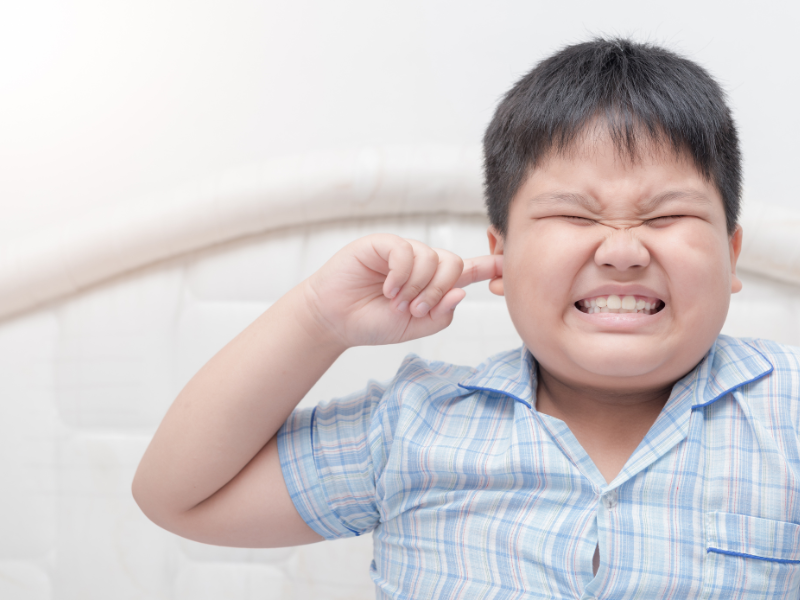A solution to stuck song syndrome!

Finally, that song that keeps playing on a loop inside our heads for no apparent reason has a name – stuck song syndrome!
In this interview with neuroscientist and opera singer Indre Viskontas she explains what it is.
“So, earworms are a term that we use for songs that get stuck in our heads. The technical scientific term is “stuck song syndrome” or “involuntary musical imagery.” And essentially it happens often when we’re not kind of thinking about it. But if I tell you the name of a couple of songs that often does it, like Who Let The Dogs Out. Or Bad Romance by Lady Gaga, rah rah, ah ha ha. You know, you’ve got it already probably in your head. Or if you’re a parent, Baby Shark. My apologies.”
What is also fascinating is that Dr Viskontas explains how to get rid of a stuck song.
“These are songs, these are melodies that are really catchy. They’re not too simple, but they’re not too complicated either. And often they don’t have a clear ending, or at least we don’t remember how they end. What’s more memorable is the actual melody but not how it ends. So if you’re trying to get the earworm out of your ear, one strategy is to sing it in your head as vividly as possible until you get to the end. And even if you don’t remember the end, make it up.”
This interview does not explain why a large number of people experience stuck song syndrome, but the phenomenon is being explored to better understand OCD, as it is a common accompanying symptom within the OCD disorder.
Here is the question, do you have a stuck song right now and did Dr Viskontas’ suggestion for ending it work?
Free Easter campaign download with posters and social tiles to help students understand the value of music learning.
What if you could advocate for music education without adding more work to your already packed schedule?
Engaging in musical activities offers profound benefits for our brains, enhancing various cognitive functions and emotional well-being.
While there can only be one winner of the BBB Music Teacher Award, we also recognize the outstanding efforts of our 2025 Runner-Up, Ruby Mensforth—a teacher whose dedication to fostering a love of music has left a lasting impact on her students.
Playing an instrument or singing in a choir isn’t just fun—it’s great for brain health too. A recent study found that people with musical experience have stronger memory and thinking skills than those without.
For many music teachers, March means concert season, assessment planning, and advocating for the importance of music education as budgets and schedules for next year take shape.
We know that speaking up for music in schools can feel overwhelming—but you don’t have to do it alone.
If you've ever conducted or played in an ensemble, you’ve likely felt it—that moment when everything clicks, the music soars, and your group performs at a level beyond anything you thought possible.
The World Economic Forum's Future of Jobs Report 2025 highlights the critical skills that will define the workforce of tomorrow.
A recent study in Ear and Hearing investigated how aging and hearing loss influence music perception, focusing on melody and timbre discrimination.
A new study in the Journal of Neuroscience reveals that our brains start processing rhythm as early as 27 weeks into pregnancy.
The 2025 Celebrate to Advocate Calendar is your go-to guide for making advocacy effortless this year!
A recent study from Waseda University has uncovered that when individuals listen to music, their heart rates synchronize, reflecting a unified physiological response.
A groundbreaking study in Nature Human Behaviour has revealed a fascinating genetic connection between musical rhythm skills and language-related traits, including dyslexia.
Recent research from the Georgia Institute of Technology has unveiled compelling insights into how music affects learning, memory, and emotions.
A recent study from Aarhus University reveals that while older adults can remember familiar music as well as younger individuals, their brains engage differently during the process.
Take our free, 60 second quiz and maximize your advocacy impact by discovering your advocacy style and knowledge gaps.
Thank you for a wonderful 2024! Here’s a little gift from BBBB to you.
Music has always been a go-to for lifting our spirits, but did you know classical music might take it a step further by actually helping treat depression?



















